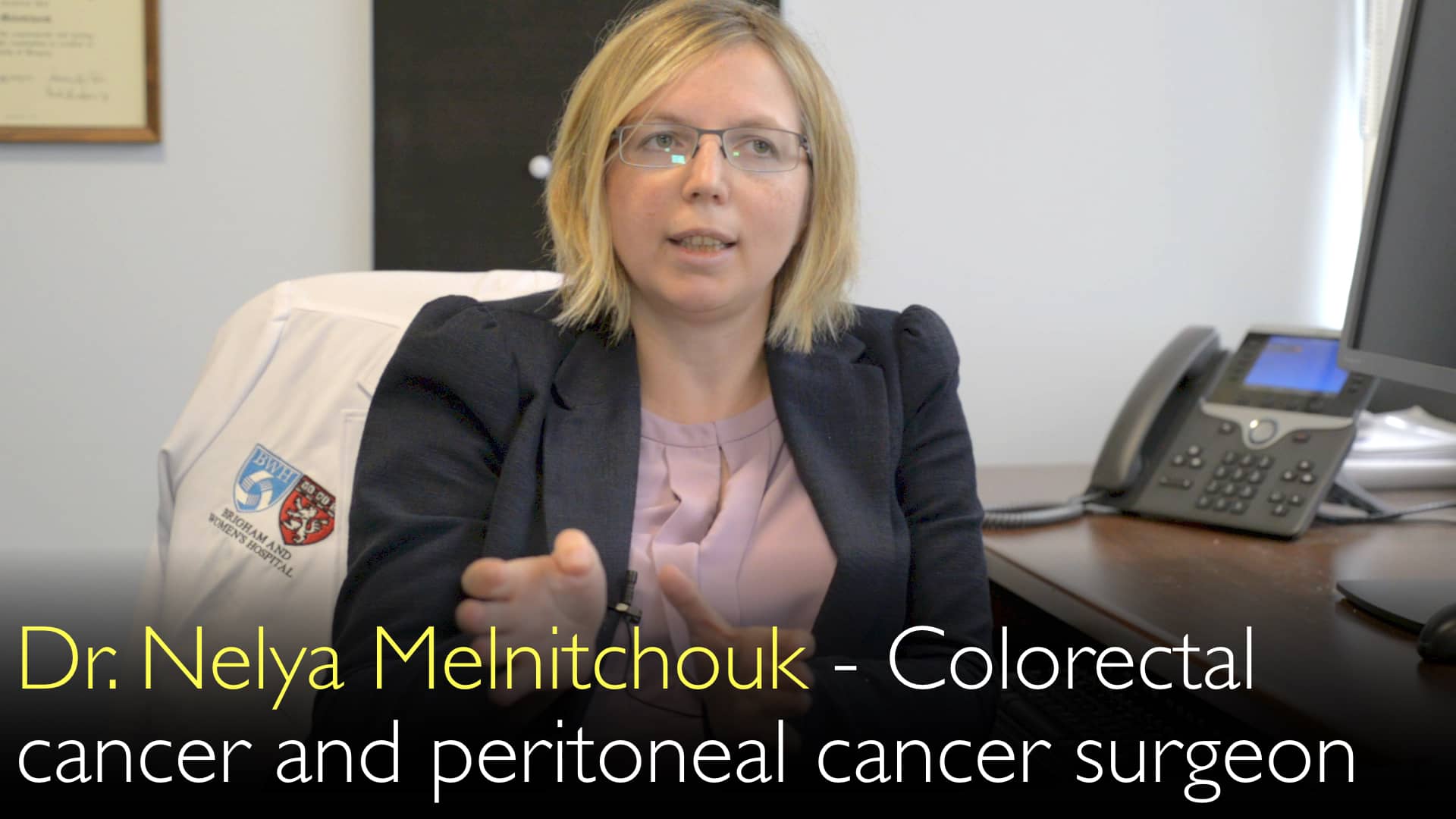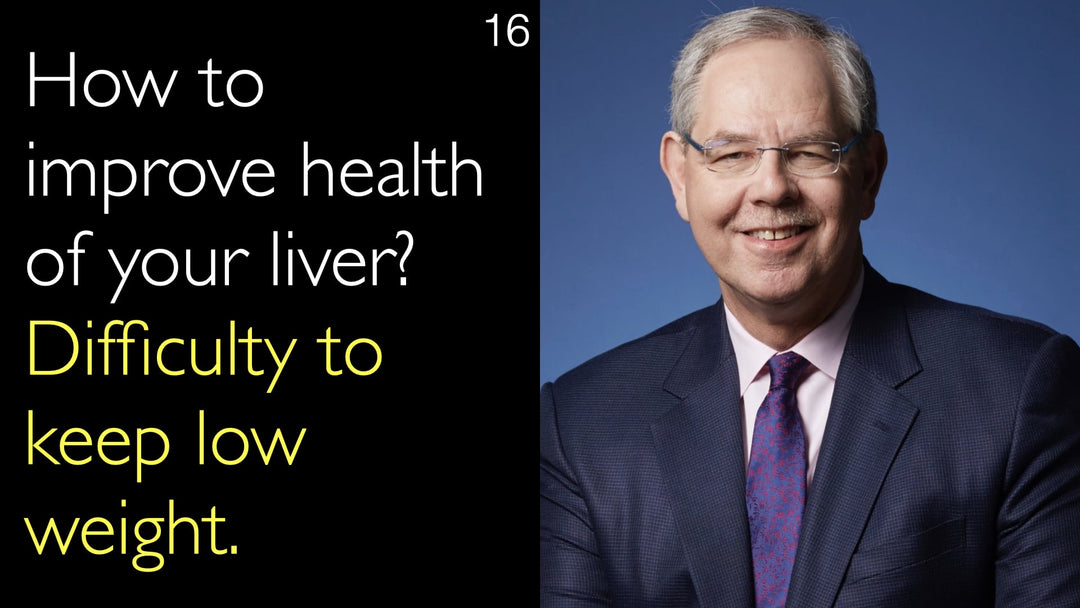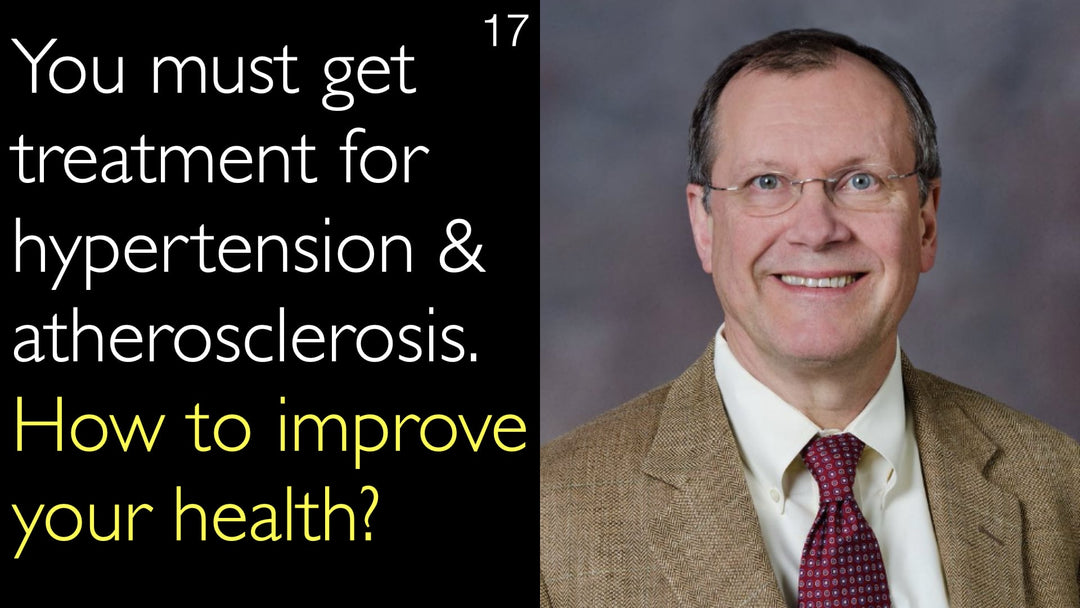Leading expert in colorectal cancer outcomes, Dr. Nelya Melnitchouk, MD, explains the critical challenges in Ukraine's cancer care system. She reveals a devastating 30-40% one-year mortality rate for colorectal cancer patients. Dr. Melnitchouk identifies key issues: inadequate cancer staging, insufficient lymph node retrieval, and a lack of national screening. She advocates for systemic improvements in diagnostics, surgical pathology, and prevention programs to save lives and reduce costs.
Improving Colorectal Cancer Survival Rates and Treatment Standards
Jump To Section
- Ukraine Colorectal Cancer Mortality Crisis
- Cancer Staging and Diagnostic Failures
- Lymph Node Evaluation Importance
- Colonoscopy Screening and Prevention
- Systemic Challenges and Solutions
- Full Transcript
Ukraine Colorectal Cancer Mortality Crisis
Dr. Nelya Melnitchouk, MD, presents alarming data on colorectal cancer outcomes in Ukraine. Her research reveals a 30-40% one-year mortality rate for patients diagnosed with this disease. This survival statistic is dramatically worse than outcomes in high-income countries like the United States.
Dr. Nelya Melnitchouk, MD, emphasizes that this mortality rate is "unacceptable" and "mind-blowing." In contrast, US colorectal cancer care focuses on five-year survival rates, which average around 70% across all stages. This stark disparity highlights a critical need for systemic improvements in Ukrainian oncology care.
Cancer Staging and Diagnostic Failures
Dr. Nelya Melnitchouk, MD, identifies inadequate cancer staging as a primary contributor to poor outcomes. The majority of Ukrainian colorectal cancer patients do not receive proper staging imaging studies. This includes essential CT scans of the chest, abdomen, and pelvis to detect metastatic disease.
Without comprehensive imaging, physicians cannot accurately determine the extent of cancer spread. This diagnostic gap leads to inappropriate treatment planning. Dr. Nelya Melnitchouk, MD, explains that proper staging is fundamental to selecting the right therapy for each patient's specific cancer situation.
Lymph Node Evaluation Importance
Dr. Nelya Melnitchouk, MD, emphasizes the critical role of lymph node assessment in colorectal cancer surgery. She notes that Ukrainian pathology reports often lack information about the number of lymph nodes examined. This represents a significant quality gap in cancer care.
The surgical standard requires removal of at least 12 lymph nodes during colorectal cancer operations. This minimum number ensures accurate detection of nodal metastases. Patients with cancer-positive lymph nodes require adjuvant chemotherapy, while those with negative nodes may avoid unnecessary treatment. Inadequate lymph node retrieval leads to both under-treatment and over-treatment of colorectal cancer.
Colonoscopy Screening and Prevention
Dr. Nelya Melnitchouk, MD, advocates for implementing a national colorectal cancer screening program in Ukraine. She recommends colonoscopy every ten years starting at age 50 as an effective strategy. Alternative screening methods include fecal occult blood testing and virtual colonoscopy (CT colonography).
Dr. Melnitchouk's cost-effectiveness analysis demonstrates that screening saves both lives and money. Early detection through screening allows for less invasive treatments and prevents cancer development by removing precancerous polyps. She acknowledges the challenge of patient participation but stresses that prevention represents the most cost-effective approach to reducing colorectal cancer burden.
Systemic Challenges and Solutions
Dr. Melnitchouk identifies multiple systemic barriers to quality cancer care in Ukraine. While acknowledging that Ukrainian surgeons receive good training, she notes limitations in access to international standards of care. The country's struggling healthcare system faces significant financial constraints that affect treatment availability.
Dr. Nelya Melnitchouk, MD, recommends adopting standardized clinical guidelines similar to NCCN guidelines used in the United States. She emphasizes the need for better interdisciplinary cooperation between surgeons, oncologists, and pathologists. Dr. Melnitchouk points to Poland's superior cancer staging outcomes as a model for Ukraine to emulate, suggesting that systemic improvements are achievable with proper implementation.
Full Transcript
Dr. Anton Titov, MD: You are interested in research on results of medical treatment and international health. You are studying the surgical outcomes in middle and low income countries. You have done very interesting research about colorectal cancer in Ukraine. What have you learned from studying cancer treatment outcomes in international settings? What advice you would give to patients about receiving better medical and surgical treatment of cancer?
Dr. Nelya Melnitchouk, MD: Thank you so much for asking me that question. This is another topic that is very dear to my heart. I did study colorectal cancer outcomes. I researched what happens with colorectal cancer patients in Ukraine. The sad part of the story is that 30 to 40 percent of patients with colorectal cancer in Ukraine die within a year of their diagnosis. That's really unacceptable.
In the United States we don't even look at one-year survival in colon cancer and rectal cancer. We look at five-year survival. Five-year survival in colorectal cancer in the US is about 70%. It obviously depends on cancer stage but that is data for all stages combined. 30 to 40% mortality from colorectal cancer in Ukraine within one year! It is just mind-blowing.
We looked in more detail why death rate from cancer in Ukraine is so high. We looked at how cancer stage is determined in patients in Ukraine. In Ukraine the majority patients do not get proper cancer stage determination. It means they do not get CT scans of the chest, abdomen, and pelvis to look for the metastatic disease.
Then patients with cancer have surgery. But pathologist’s reports do not include information about a number of lymph nodes that were removed during surgery. That is very important to do in cancer surgery. Because in order to properly treat colorectal cancer, you have to know if the patient had positive or negative lymph nodes.
In order to properly determine cancer stage, we need to see 12 lymph nodes. Then pathologist is able to tell us if some of lymph nodes are positive for cancer or not. But you have to obtain at least 12 lymph nodes during colorectal cancer surgical operation. Then you are able to tell if one of the lymph nodes is positive for cancer.
Patients with lymph nodes positive for cancer will require chemotherapy. Sometimes the lymph nodes are negative for cancer. Then you can observe the patient without doing chemotherapy. There are some nuances in treatment of colon cancer and rectal cancer after surgery. Some patients might still require chemotherapy. But that is a topic that is open for discussion.
All patients with positive lymph nodes for cancer, need to have chemotherapy if a patient can tolerate it. You may look only at three lymph nodes after the surgery. They could be all negative for colon cancer. But it doesn't tell you much. Because maybe you just miss the positive lymph nodes.
That is a very important thing to do when you deal with colorectal cancer. It is crucial to remove at least 12 lymph nodes during surgical operation. So that a pathologist can examine them under the microscope for signs of metastatic cancer. It is very important thing to do postoperatively. You look at the cancer specimen removed during surgery.
There are several methods to improve the outcomes of colorectal cancer treatment in Ukraine. Physicians have to start a national colorectal cancer screening program. You can screen for colorectal cancer in many different ways. One method is optical colonoscopy every 10 years. You can do fecal occult blood testing. There are many methods of doing it.
But we looked at doing colonoscopy screening every 10 years. If you do screen patients with colonoscopy every 10 years, then you can not only save lives but actually save cost in Ukraine. You have to start colonoscopy screening at age of 50 and do it every 10 years. Country will save money and will improve the cancer treatment outcomes.
We did the cost-effectiveness analysis on screening colonoscopy program. Screening will detect disease earlier, so you can only sometimes treat it just with surgical operation. Patients might not need expensive chemotherapy. Screening can actually prevent colorectal cancer. If you detect a colon polyp, this is precancerous condition. Surgeon will remove a polyp in the colon. Then the patient will not develop colorectal cancer.
Another method is to improve determination of cancer stage. Every patient should have MRI and CT imaging up immediately after diagnosis of colorectal cancer. Every patient with colorectal cancer has to have a proper lymph node evaluation.
Unfortunately, it's quite difficult to get patients to do colonoscopies. Now there is virtual colonoscopies possible. This is also called CT colonography. But nevertheless worldwide about 1.5 million of colorectal cancer cases happen every year. They are all potentially preventable.
Prevention of colon cancer is the best. But it is also difficult for some reason for patients to do colonoscopies, even every 10 years. That's right. It is very difficult to get patients to do colonoscopy. Increasing awareness of colorectal cancer prevention.
It is also important to build a program nationwide that encourages patients to be screened for colorectal cancer. Even starting with a program that actually allows people the opportunity to get screened for colon cancer. That would be the first step. Awareness and building awareness and prevention is the best and the most cost-effective method to reduce colorectal cancer in many countries.
Dr. Anton Titov, MD: Exactly! There are patients who are already diagnosed with colon cancer or rectal cancer. Where do you see the most challenges for them? Is it in the training of surgeons and medical oncologists? Is it the question of availability to pay for cancer treatments? There are situations when you have well trained surgeons and oncologists, and the medical system exists. But something is broken in the infrastructure or coordination of treatment or in the decision-making process. Where do you see most of the problems?
Dr. Nelya Melnitchouk, MD: Well, part of the problems is cost. Definitely, Ukraine's medical system is struggling right now. Training in Ukraine is good, the surgeons are well-trained. But they have to have better access to standards of care available worldwide. For example, we have in the US, we have NCCN guidelines that we adhere to. Other countries have their own guidelines.
But it is important to have clinical guidelines that the surgeon and medical oncologist can follow. It is important to cooperate closely with a pathologist. Pathologist can perform a better cancer staging of the lymph nodes, as I discussed before. It is important to build a better infrastructure in the system around clinical care of the patients with colorectal cancer.
Have you looked at any other countries? Maybe some other countries of the former USSR? We have the data from Poland and we will publish that. Poland is doing actually much better than Ukraine. The cancer staging is much better, so they definitely got something correctly. Ukraine should follow that example probably.








